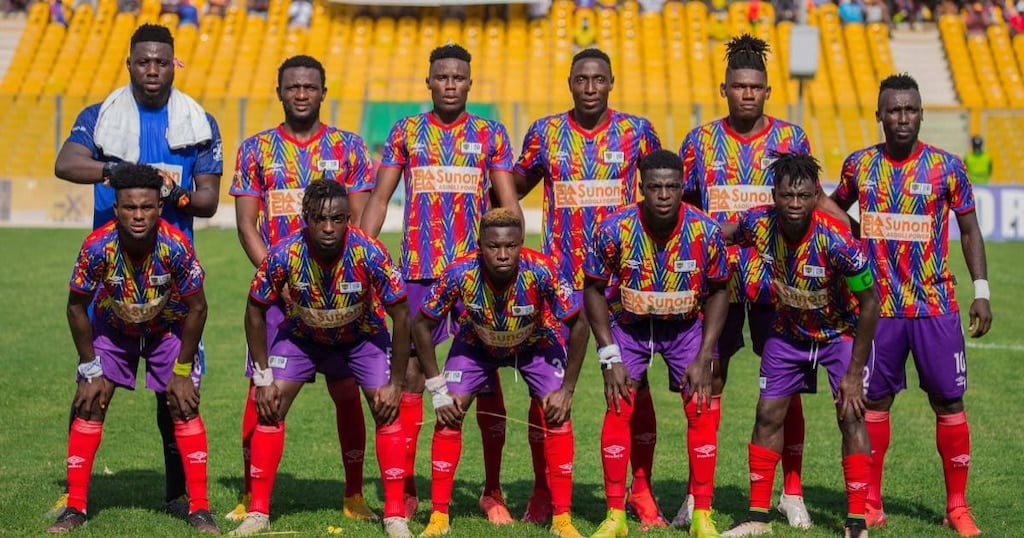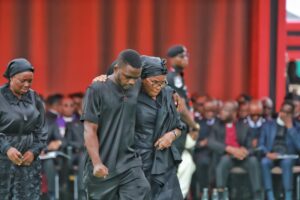GFA Ban Throws Hearts of Oak’s Transfer Strategy into Doubt

Accra Hearts of Oak’s hopes of rebuilding their squad ahead of the 2025/26 football season have been thrown into uncertainty following a player registration ban imposed by the Ghana Football Association (GFA). The decision stems from the club’s failure to settle the final installment of a transfer fee owed to another club for a player, identified as Adams.
The timing of the GFA’s ruling could not be worse for the Phobians, who are in the middle of what was shaping up to be a transformative off-season. Following a disappointing 2024/25 campaign, the club had embarked on a bold plan to restructure its technical and playing departments. A new recruitment team was announced recently, tasked with identifying and signing top talents to strengthen the squad. This move was closely followed by the high-profile appointment of Mas-Ud Didi Dramani as head coach, a tactician with proven experience at both domestic and international levels.
The ban, however, places these plans in limbo. Under the GFA’s directive, Hearts of Oak are barred from registering any new players, whether for local competitions or international engagements, until the outstanding financial obligation is settled. The ruling has effectively stalled the club’s transfer activities, with insiders confirming that several targets had already been identified and preliminary talks were underway.
For Coach Dramani, the situation presents an immediate challenge. Tasked with rebuilding a team capable of challenging for silverware, his vision for a revitalized Hearts squad now faces significant delays. With the club unable to bring in reinforcements, preparations for the new season are at risk of losing momentum.
“This ban disrupts everything,” a source within the club noted. “We had already done a lot of groundwork—scouting, negotiations, shortlisting—but now everything is on hold until this matter is resolved.”
The setback is especially concerning given the club’s recent struggles on the pitch. Last season saw Hearts of Oak fall short of expectations, with inconsistent performances and a lack of depth contributing to a mid-table finish. The management’s response was to overhaul its technical setup and aggressively pursue fresh talent in the transfer market. However, this latest development raises questions about the club’s financial management and its capacity to handle administrative and contractual obligations in a timely manner.
Industry observers say the GFA’s stance underscores the importance of financial compliance in modern football. “Clubs must understand that you cannot build sustainably on unpaid debts,” one analyst remarked. “Hearts of Oak are a legacy club in Ghanaian football, but they must show that they are also professionally run.”
Failure to resolve the issue quickly could prove costly. The transfer market is already heating up, with rival clubs actively pursuing top players. With their hands tied, Hearts of Oak risk missing out on priority signings who could have significantly strengthened their squad. Moreover, prolonged uncertainty could affect morale within the club and cast doubt over the direction of its rebuilding process.
Supporters, too, have begun to voice concern, with many expressing frustration on social media about the club’s inability to close deals and meet obligations. For a fanbase eager to see their team return to dominance, the delay is deeply disappointing.
Despite the challenges, there is still hope that the issue can be resolved swiftly. Reports suggest that club executives are working behind the scenes to clear the debt and appeal for the lifting of the ban before the transfer window closes. But until that happens, Hearts of Oak’s ambitious plans remain in a state of suspension, and Coach Dramani’s rebuild will have to wait.
As the days go by, the pressure is mounting—not just to fix the immediate issue, but to prove that Hearts of Oak can still function like the top-tier football institution it aspires to be.








